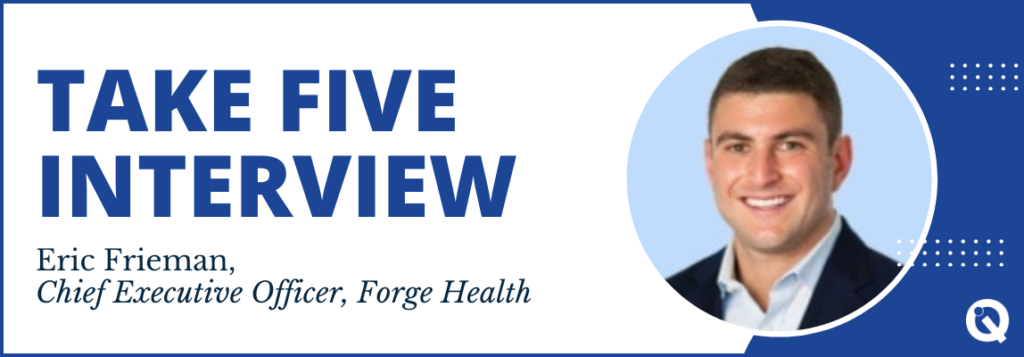Forge Health is a member of the Quality Institute’s Provider Council.
How has your personal background and family history with veterans informed Forge Health’s focus?
At Forge Health, we provide goal-oriented treatment proven effective in helping people overcome mental health challenges, substance use, and associated trauma. My brother Jon served in the U.S. army as an infantry officer deployed to two war zones, including Iraq. And the devastating statistic is that my brother lost more of his soldiers to suicide than in combat. He also lost soldiers to alcohol-related driving accidents.
That experience showed me what happens when mental health treatment is not effective, affordable, or accessible. I saw the need for providers who can treat high acuity patients on an outpatient basis. Treatment needs to be in network with commercial health insurance companies as well as Medicaid and Medicare. And you need to have qualified and trained professionals providing care. That’s why we founded Forge Health in 2016.
What is a key priority for 2025?
For us, the priority is to ensure that we stick to our ethos of delivering high quality, local care. And ensuring the best client care experience with the best clinic-based staff while deepening our relationships on the community level.
How can we better use Telehealth?
That’s using telehealth as a modality for providing care and not requiring a patient to choose one or the other. The clinical outcomes that we’ve seen tell us virtual care for the right patient is just as good as in-person care. We provide both. Not everyone is appropriate for virtual care, and not everyone needs in-person care. We think in terms of a hybrid approach. Maybe you have initial appointments in-person and follow-up virtually.
Can you describe the model of care that Forge Health uses to provide mental health and substance use disorder services?
I can’t tell you how many times we get a referral from a physical health provider that is not the correct diagnosis. Someone is referred for anxiety, say. But after we do a comprehensive bio-psychosocial evaluation we find out the person’s primary issue is alcohol use disorder and anxiety is secondary. We recognize the need to treat concurrent health issues.
The next is our ability to provide hybrid care — in-patient and virtual depending on patient preference and clinical need. Next is the use of multidisciplinary care teams so our patients have access to a licensed therapist as well as a psychiatric care provider. Not everyone needs both, but we can provide that if necessary. And lastly is our ability to treat the full outpatient continuum of care for the moderate to severe patient population … we can provide anywhere from nine to 19 hours of intense outpatient treatment for people who need intensive therapy, but not 24/7 care.
Lastly, we like to ask a question outside a person’s professional life. Can you describe an experience in your life that significantly impacted who you are today?
My brother’s life and legacy impacted me profoundly. He died of brain cancer in September of 2024. He was devoted to a cause even though he had no obligation to put his life on the line. He felt obligated to serve his country. He also was our first investor and supporter. The experiences he had in the military and his untimely death had a resounding effect on my life. And everything I do is to honor his life and to honor his legacy.

